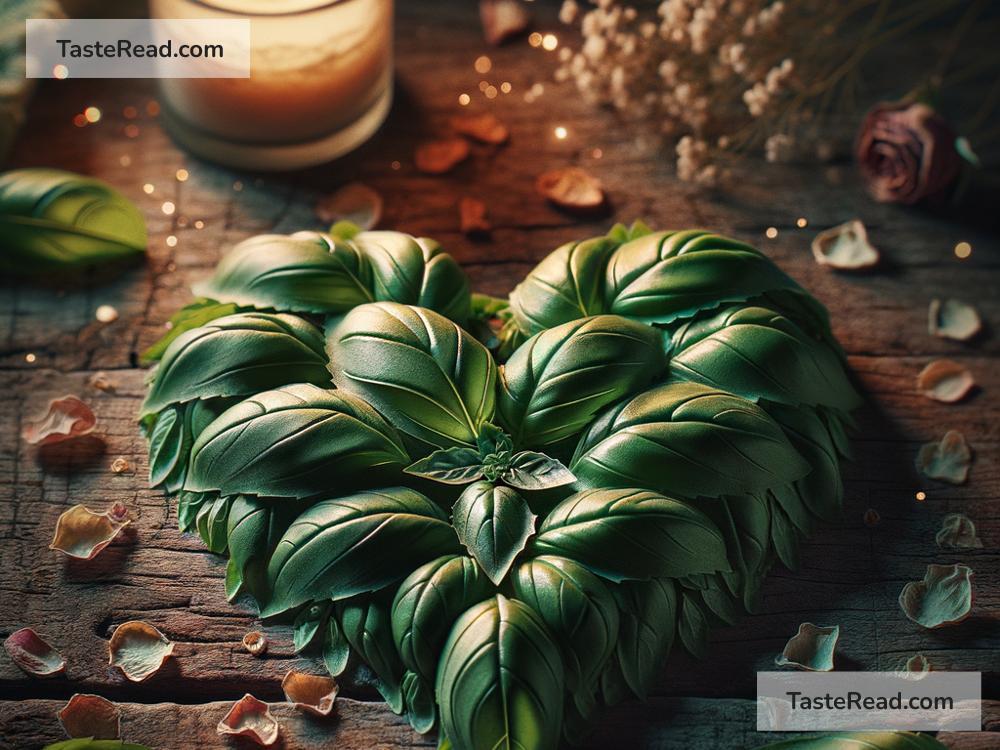The Mythical Connection Between Basil and Love
Basil, the fragrant herb often found in kitchens all around the world, has a lesser-known side: its mythical connection to love. For centuries, basil has been tied to stories of romance, devotion, and passion in cultures across the globe. Though it’s a staple ingredient in many recipes, basil is much more than a seasoning—it has deep roots in myths, beliefs, and traditions surrounding the power of love.
Let’s delve into the fascinating connection between basil and love, exploring why this humble herb has captured hearts throughout history.
The Origins of Basil’s Romantic Reputation
The connection between basil and love can be traced to ancient cultures. In many societies, basil was considered a sacred plant, often associated with life, beauty, and positive emotions. Its sweet fragrance and lush appearance made it a symbol of vitality and affection, qualities that naturally align with themes of love.
For example, in ancient Greece, basil was thought to have divine properties. The Greeks believed that basil first sprouted near the tomb of Christ after His resurrection, linking the herb to eternal life and love. Meanwhile, in India, basil is associated with the goddess Lakshmi, who represents wealth, prosperity, and devotion. Tulsi, a variety of basil, is considered sacred and symbolizes the purest form of love and loyalty in Hinduism.
But basil doesn’t just have religious and spiritual significance—its romantic symbolism appears in folk traditions across the world.
Basil in European Love Traditions
In parts of Europe, basil has long been connected to matters of the heart. In Italy, basil is affectionately called “la pianta dell’amore,” or “the plant of love.” Some Italian traditions even suggest that growing basil in a garden signals that the person living in the home is ready for love. When someone gifts you basil, it’s thought to signify romantic interest or affection.
During the Renaissance, young women in Italy often placed basil leaves outside their windows as a way to attract suitors. The sight of basil would signal to potential lovers that the woman was open to attention. It became somewhat of a playful yet serious symbol of romantic readiness.
Elsewhere in Europe, such as Romania, basil played a role in matchmaking rituals. Young women would give sprigs of basil to their potential partners as a sign of trust and affection. If the man accepted the gift, it was believed to mark the start of a budding romance. Basil was often seen as a way to communicate feelings without words, creating a subtle yet powerful connection.
Basil and Love in Folklore
Folk tales often elevate basil’s mythical connection to love. In many stories, basil acts as a bridge between lovers, symbolizing devotion and fidelity. One popular tale comes from Greece and involves a young couple separated by war. The woman planted basil while waiting for her partner to return, believing that its growth promised the strength of their bond. When he finally came back, their love was described as lasting as the resilient basil plant.
In other stories from the Mediterranean regions, basil became a token of eternal love. For example, lovers would exchange basil leaves as a promise of commitment. Some cultures even placed basil on graves to signify undying love for someone who had passed away.
Basil’s Fragrance: A Magical Attraction
One reason basil is linked to love may be its captivating fragrance. The herb’s scent is rich and sweet, with hints of spice, and is said to be enchanting to those who catch its aroma. In ancient times, people believed that basil’s smell could awaken feelings of desire and passion. Some even thought it acted as a kind of herbal “love potion.”
Modern science supports the idea that scent plays an important role in attraction. Aromas can trigger emotional responses, and basil’s warm, inviting smell may evoke comfort and closeness—qualities that strengthen human connections.
Symbolism in the Modern World
Although many of the mythical beliefs surrounding basil have faded over time, the herb still holds a romantic charm. In modern cooking, basil often shows up in dishes intended to be shared, such as a plate of pesto pasta or Margherita pizza. These meals are famously enjoyed with loved ones, making basil an indirect companion in fostering relationships.
Basil has also gained popularity in aromatherapy as an ingredient that promotes relaxation and emotional openness. In this way, it continues to play a subtle role in creating loving environments.
Conclusion
Basil’s mythical connection to love transcends cultures and centuries. From ancient spiritual beliefs to European romance rituals, the herb has always had a special place in matters of the heart. Whether exchanged as a romantic token, planted as a sign of devotion, or simply enjoyed for its aromatic qualities, basil remains a symbol of the power and beauty of love.
The next time you add basil to a dish or catch its sweet fragrance in the air, remember its fascinating history. It’s far more than just a herb—it’s a reminder that love, in all its forms, can flourish just like the resilient basil plant. Perhaps basil’s true magic lies in the subtle way it connects people, creating moments of joy and closeness through its presence in both kitchens and hearts.
So, the next time you gift someone a bundle of fresh basil, you might just be giving them more than an ingredient for their cooking—you could also be sending them a little spark of mythical love.


